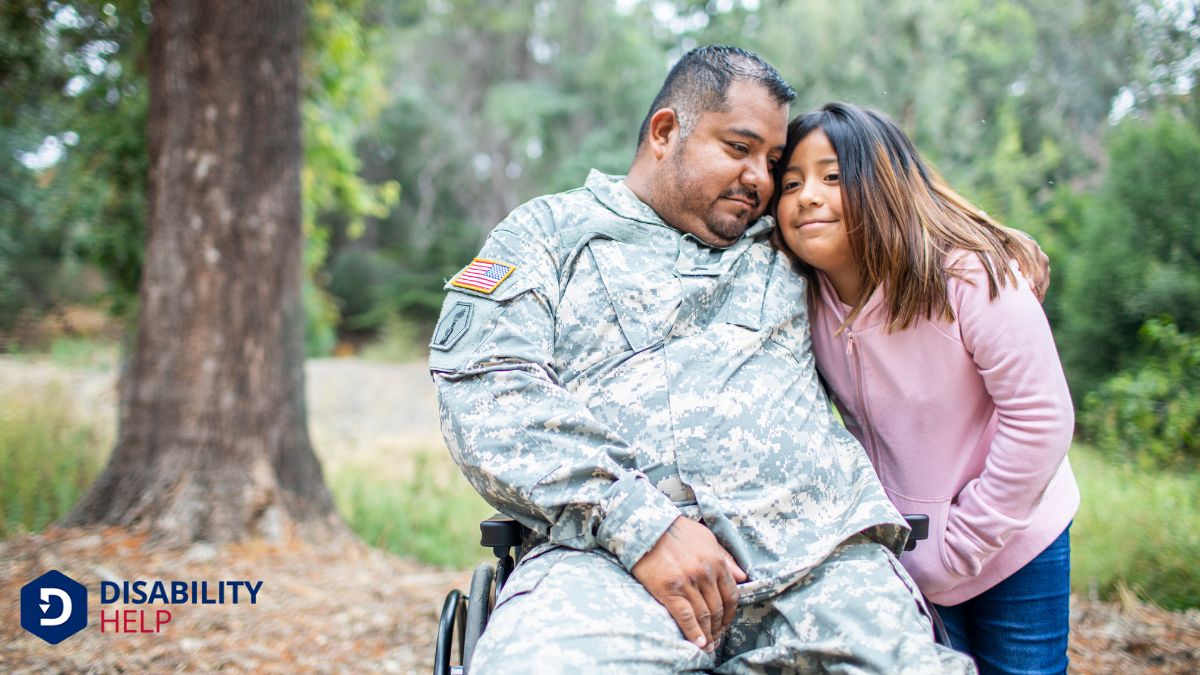As we commence understanding the requirements for disabled veterans to receive a transportation stipend, we'll explore vital eligibility criteria, including the significance of service-connected disabilities and financial assessments. We'll also highlight the necessary documentation to streamline the application process. These insights aim to empower us with the knowledge needed to navigate this significant benefit effectively. Are you ready to uncover these key details?
Key Takeaways
- Eligible veterans must have served in active military, naval, or air service with a discharge other than dishonorable.
- A service-connected disability recognized and rated by the Department of Veterans Affairs is required.
- Veterans must have scheduled medical appointments at a VA facility or VA-authorized provider.
- Proof of financial need is often necessary, with income assessed against a specific threshold.
- Proper documentation, including disability ratings and transportation expenses, is essential for application completeness.
Understanding the Transportation Stipend for Disabled Veterans

When it comes to supporting our disabled veterans, understanding the transportation stipend is essential. This stipend helps cover travel expenses for medical appointments, guaranteeing veterans can access the care they need without financial strain.
We must recognize the significance of this benefit in easing the burdens faced by those who've served our country.
The stipend works by reimbursing veterans for travel-related costs, such as fuel or public transportation fares. It's a practical way to help our veterans maintain their health and well-being.
While the process might seem complex, knowing how it operates empowers us to assist veterans effectively. By grasping the basics of this stipend, we can better support our community and guarantee veterans receive the assistance they deserve.
Eligibility Criteria for the Transportation Stipend
To determine who qualifies for the transportation stipend, we need to examine the eligibility criteria closely.
Understanding these requirements guarantees that we can access the benefits we deserve. Here's a simplified breakdown:
- Veteran Status: We must be veterans who've served in the active military, naval, or air service.
- Discharge Conditions: Discharge under conditions other than dishonorable is necessary for eligibility.
- Medical Appointments: We should have scheduled medical appointments at a VA facility or VA-authorized healthcare provider.
- Financial Need: Some programs may require us to demonstrate financial need, guaranteeing those who need it most receive assistance.
Service-Connected Disability Requirements
Understanding the eligibility criteria sets the stage to explore the service-connected disability requirements for the transportation stipend. To qualify, we need a disability that the Department of Veterans Affairs (VA)A U.S. government agency that provides services and benefits to military veterans, including those w... recognizes as service-connected. This means the disability must have been caused or aggravated by our military service.
It's essential that the VA has officially rated our condition, as this rating impacts our eligibility for various benefits, including the transportation stipend.
Let's confirm our disability is documented correctly with the VA. We should check that our records reflect the service connection and any ratings assigned. This helps us avoid potential pitfalls and guarantees our application process goes smoothly.
Income and Financial Need Assessment
When evaluating eligibility for the transportation stipend, we must consider income levels to guarantee support goes to those who need it most.
We'll need to gather specific financial documents to accurately appraise each veteran's situation.
Eligibility Based on Income
Although financial support is essential for many disabled veterans, not everyone qualifies for a transportation stipend based solely on their service. Eligibility often hinges on our income level and financial need.
To determine if we qualify, we need to understand the criteria that can affect our eligibility. Here's what we should consider:
- Income Thresholds: Our household income must fall below a specific threshold, which varies based on location and family size.
- Cost of Living: The cost of living in our area might impact eligibility, as higher living expenses can affect income assessment.
- Dependent Family Members: The number of dependents in our household can influence income evaluation.
- Additional Benefits: Receiving other government benefits may affect our eligibility for a stipend.
Understanding these aspects helps us assess our potential eligibility.
Financial Documentation Required
Evaluating our eligibility for a transportation stipend is just the beginning; now, let's focus on the financial documentation we need to gather.
First, we'll need recent pay stubs or income statements. These documents help verify our current earnings.
Next, let's assemble our tax returns from the previous year, as they provide a thorough view of our annual income.
In addition to income proof, we should collect any documentation that highlights our financial needs. This might include medical bills, mortgage statements, or utility bills.
These documents illustrate our financial obligations and can support our case for assistance.
Distance and Frequency of Medical Appointments
For many disabled veterans, the distance and frequency of medical appointments can greatly impact their daily lives and access to essential care.
When considering a transportation stipend, we must evaluate how often we need to attend these appointments and how far they're from our homes. This consideration can help determine the level of assistance we might receive.
Here's what to keep in mind:
- Distance: How far is the nearest VA medical facility or clinic?
- Frequency: How often have we scheduled appointments? Weekly, monthly?
- Travel Time: How long does it typically take to reach our destination?
- AccessibilityThe design of products, devices, services, or environments to be usable by people with disabilities....: Are there convenient public transportation options, or do we rely on personal or specialized vehicles?
Understanding these factors can help us make informed decisions about our transportation needs.
Required Documentation for Application
Let's guarantee we've all the necessary documents ready for the transportation stipend application.
We'll need to gather proof of disability, service verification documents, and transportation expense records.
Having these on hand will streamline the process and help us secure the support we deserve.
Proof of Disability
How do we guarantee that our application for the transportation stipend is complete and accurate?
We need to make certain that our proof of disability is well-documented and aligns with the requirements. This documentation is essential for a successful application.
Let's take a closer look at what we should provide:
- Disability Rating Decision Letter: This letter from the Department of Veterans Affairs (VA) details our disability percentage.
- Official Medical Records: Include relevant medical records that support our disability claims.
- VA Disability Award Letter: This letter confirms our monthly disability benefitsFinancial assistance provided to individuals who are unable to work due to a disability, such as Soc... and status.
- VA Form 21-4138: A statement in support of our claim, offering any additional details about our disability not covered elsewhere.
Service Verification Documents
When submitting our application for the transportation stipend, guaranteeing the inclusionThe practice of creating environments in which any individual or group can be and feel welcomed, res... of thorough service verification documents is vital.
These documents verify our service history and confirm our veteran status, which is an important requirement. We need to provide our DD Form 214, which outlines our service record and discharge status. If we don't have this form, contacting the National Personnel Records Center can help us obtain it.
Additionally, including any award letters or correspondence from the Department of Veterans Affairs strengthens our application. These letters should align with our service record and disability status.
Transportation Expense Records
To guarantee our transportation stipend application is complete, we must provide detailed transportation expense records.
These documents help verify our travel expenses related to medical appointments and other approved activities.
Let's break down what's necessary for our application:
1. Receipts: We need to collect and organize Receipts for all transportation costs, whether it's for public transit, gas, or taxi services.
2. Mileage Logs: If we use a personal vehicle, keeping a log of miles traveled to each appointment is essential.
Record dates, destinations, and odometer readings.
3. Appointment Verification: Collect proof of medical appointments, such as confirmation emails or visit summaries, to support our travel claims.
4. Payment Records: Maintain records of any payments made, like cash fares or credit card transactions, to validate our transportation expenses.
Step-by-Step Application Process
Steering through the application process for the transportation stipend for disabled veterans might seem intimidating, but it's straightforward when broken down into manageable steps.
First, we gather all necessary documents, including proof of disability and any transportation expense records. Next, we complete the application form, available online or at our local VA office. It's essential to fill out every section accurately and attach all required documentation.
Once we've double-checked everything, we submit the application either online or in person.
After submission, we should receive a confirmation notice. It's important to keep this for our records.
Finally, we wait for the VA's decision, which typically takes a few weeks. Patience is key, but staying informed by checking our application's status helps ease the process.
Common Challenges and How to Overcome Them
While the application process for the transportation stipend is straightforward, we might still encounter some common challenges along the way. Understanding these hurdles can help us navigate them more efficiently.
Here's a list of potential obstacles and how to overcome them:
- Missing Documentation: Double-check that all required documents are complete and accurately filled out before submission.
- Eligibility Confusion: Clarify eligibility requirements by thoroughly reading guidelines or contacting a VA representative for assistance.
- Application Delays: If you're experiencing delays, follow up with the VA office to guarantee your application is being processed.
- Communication Issues: Maintain clear and regular communication with VA staff. Don't hesitate to ask questions if you're unsure about any part of the process.
Resources and Support for Disabled Veterans

Although steering through the benefits and services available to disabled veterans can be overwhelming, a wealth of resources and support is designed to assist us in this journey.
The Department of Veterans Affairs (VA) offers extensive programs, including health care, vocational rehabilitationServices that help individuals with disabilities prepare for, obtain, and maintain employment., and financial assistance.
We can also connect with local veterans service organizations, such as the American Legion or Disabled American Veterans, for personalized guidance and advocacyThe act of arguing in favor of, supporting, or defending the rights and interests of individuals or ....
These organizations often provide valuable insights into traversing the system and accessing needed benefits.
Additionally, online platforms like eBenefits allow us to manage claims and access resources conveniently.
Let's tap into these networks to guarantee we're receiving the support we deserve, making our path to securing a transportation stipend smoother and more informed.
Conclusion
To summarize, we've walked through the essential steps to secure a transportation stipend for disabled veterans. By understanding the eligibility criteria, documenting our service-connected disabilities, and demonstrating financial need, we're better prepared to navigate this process. Remember, gathering the necessary documents and following the application steps carefully are key. While challenges may arise, staying informed and seeking support can make a significant difference. Let's guarantee we're accessing the benefits we've earned and deserve.






